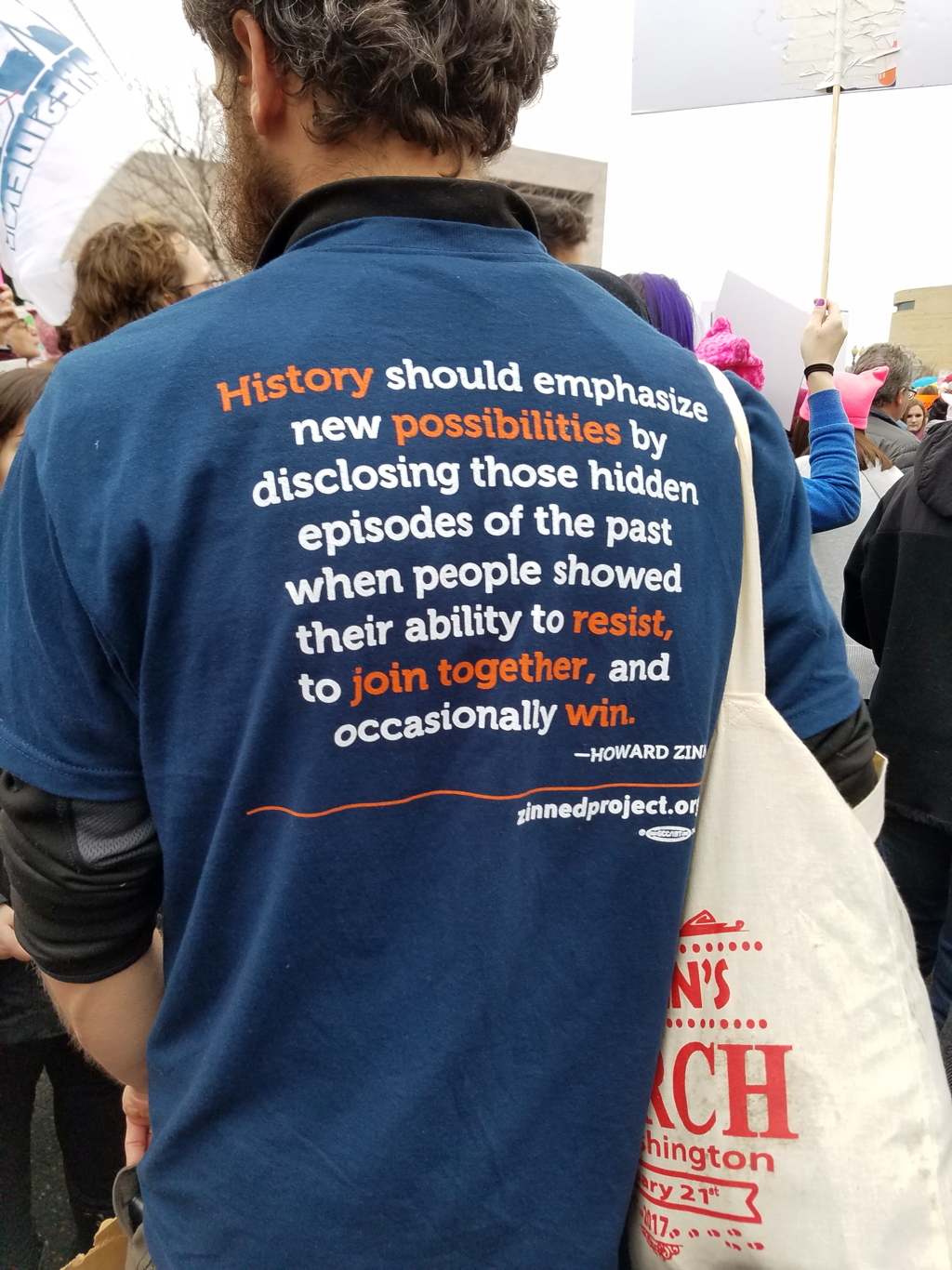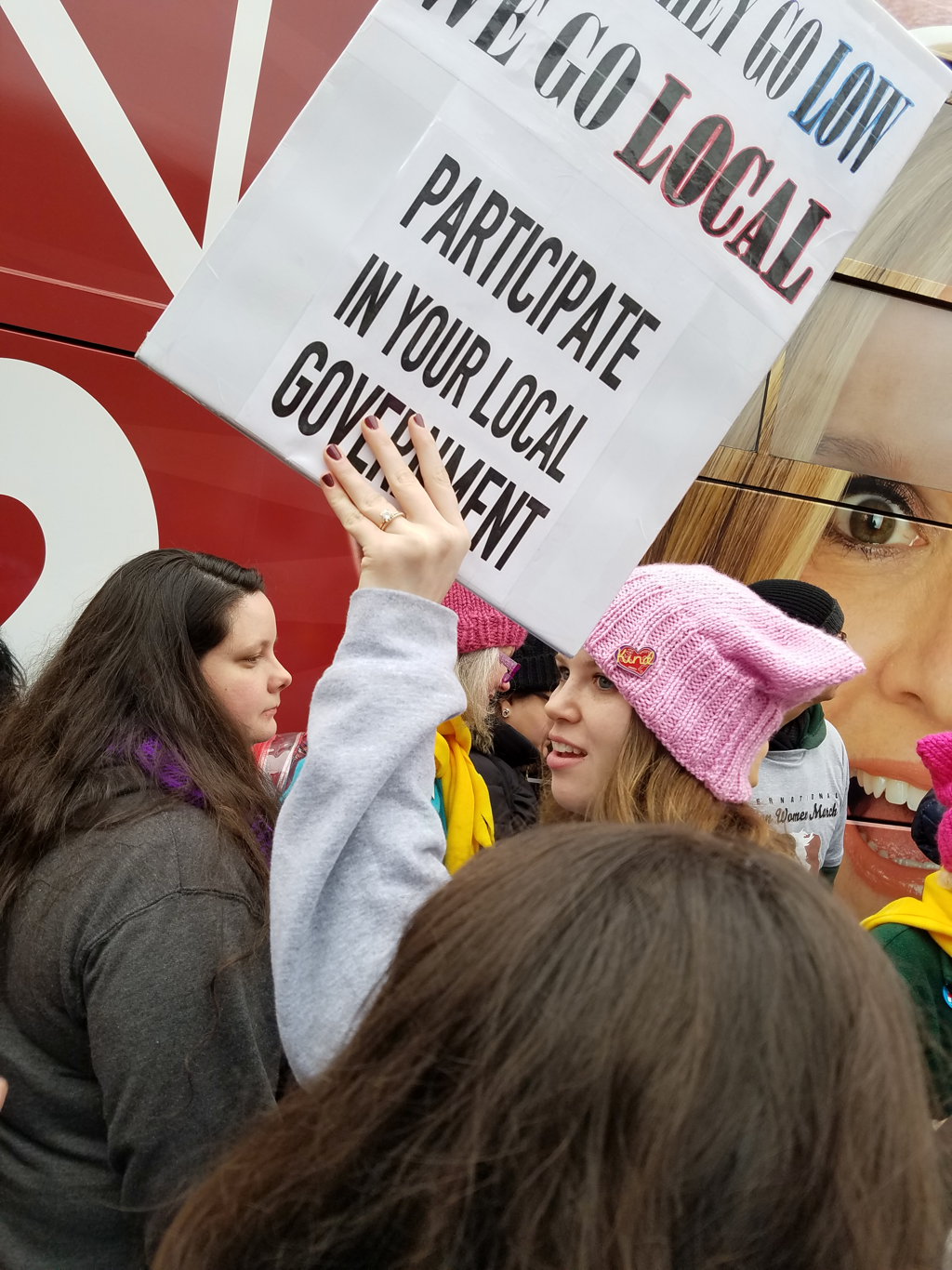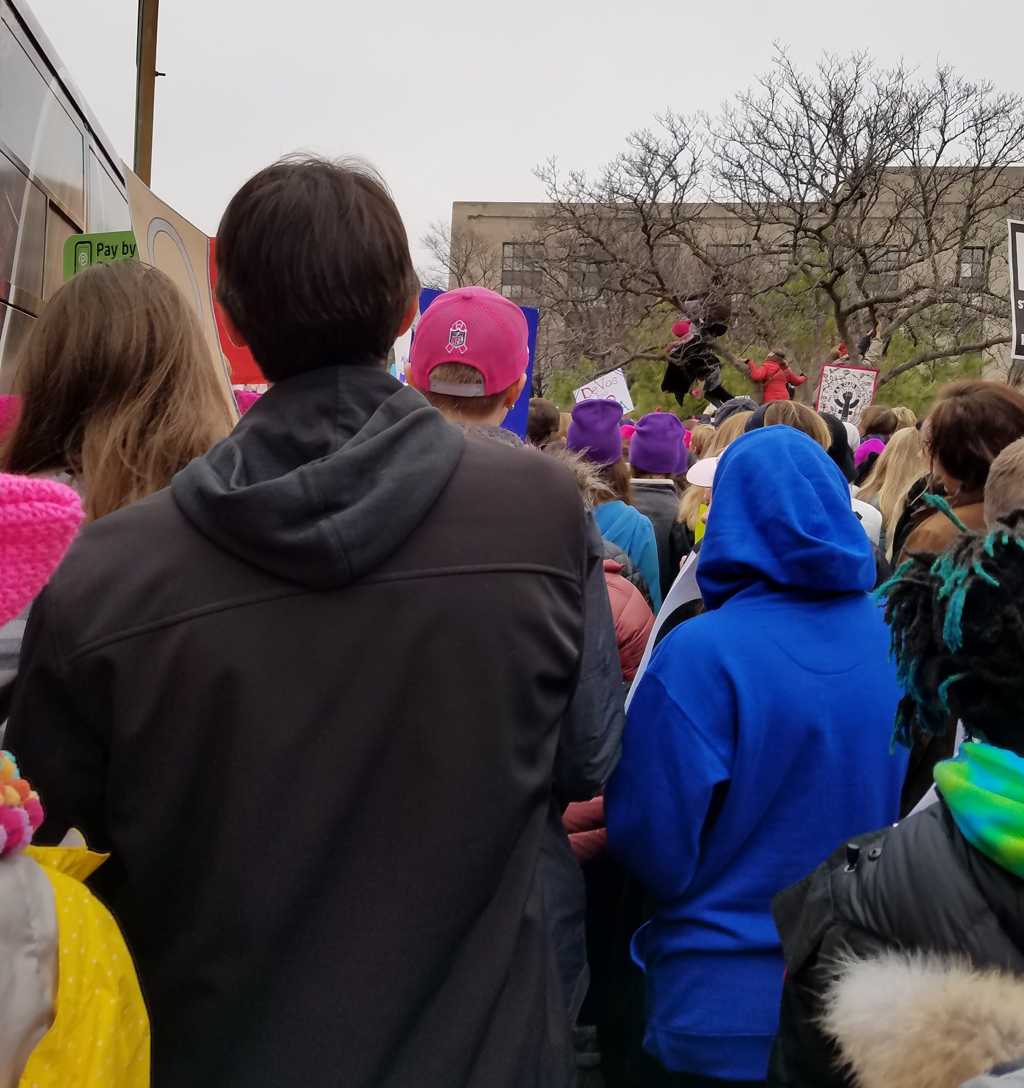|
I first heard about the Women’s March in Washington in early December last year. As soon as I did, I used my frequent flyer miles to get a ticket from my home in Northern California to Washington, DC. I knew I had to go and figured I would find friends to join me later. Well, none of my friends wanted to travel to DC to attend the March. Most of them attended Sister Marches in LA, San Francisco, Oakland and Walnut Creek, California. I was going to DC. I did not care that I was going to be the only one I knew there, but if I was going to go, I wanted to make good use of the trip. So, I signed up to attend an event associated with the March about training for activists with Ralph Nader as the keynote speaker. I attended a workshop on communicating across economic and racial cultures for community organizers. The bottom line message of the two-hour workshop was that when professional organizers and local activists talk, they use different language. Professional activists use words like “mobilization,” “process,” and “benchmark.” Many of these words have little meaning outside of an academic environment. The people on the ground, the Union member/organizers, the community leaders who came up from the ground, use words like “jobs,” “housing,” and “healthcare.” Community leaders use words that make sense in the real world.They use words that make sense to people on either coast as well as in the middle. Words even 45 can understand. That started me thinking about how we talk to each other in the current political environment. That workshop was not the beginning of my experiments in communication. As a psychologist, the core of what I do every day is looking at how communication and behavior interact. I also had a brief stint in radio that required me to look at how I can express myself in simple language. My children were young at the time, and I was working with a coach who encouraged me to use the same vocabulary I would use with them. I had used the word “primate” in one show. The problem with that advice is that I never used a simple vocabulary with my children. The idea that I need to use clear language to explain complex concepts is not new to me. The idea of applying it to activism is.
2 Comments
7/21/2017 11:17:12 pm
Our group, Contra Costa Progressives, held a five session training on citizen journalism. The eight members of the class learned much about working as a team creating video using smartphones, how to work as a team getting long shots, close ups, interviewing etc. The concept is to produce videos on progressive events and issues in Conta Costa County to get info out to the general public in a way that would appeal, educate and inspire others, in other words, to change hearts and bring understanding to a wider audience. If this appeals to you, if it in some way lines up with ideas you have had on how this can contribute to remaking our society, our children's and grandchildren's future, please let us know at [email protected]. Peter Dragovich
Reply
Judi Herman
7/24/2017 11:31:38 am
Thanks for letting us know about this.
Reply
Leave a Reply. |
Archives
March 2018
categoriesNo categories.
|




 RSS Feed
RSS Feed